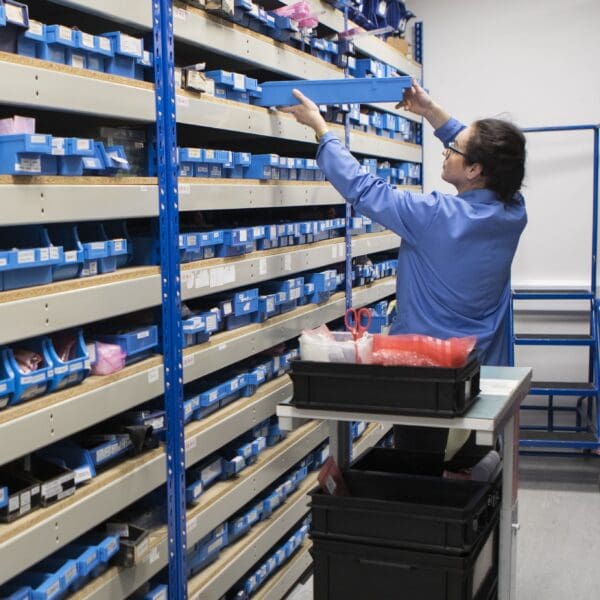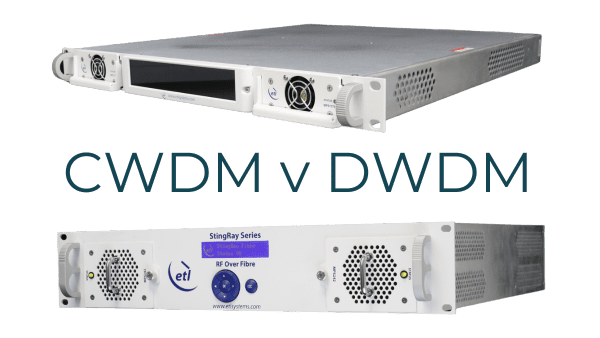
DWDM
Supports higher capacity over longer distances
ETL Systems’ StingRay DWDM RF over Fibre solutions are designed for high-density and long-distance transmission, making them ideal for demanding applications that require robust performance over extended fibre links.
Using dense wavelength division multiplexing (DWDM), ETL’s modules enable the transmission of up to 40 wavelengths on a single fibre, with the capability to extend distances up to 500km and beyond when optical amplification (EDFA) is employed.
DWDM technology is particularly advantageous when compared to CWDM, as it allows for a far greater number of channels and supports much longer transmission distances, making it a critical solution for satellite ground stations and teleports handling high-capacity RF signal transportation.
News Article
CWDM vs DWDM: What’s the difference?
Satellite ground stations traditionally use coaxial cables to transmit RF signals, but these suffer from high transmission losses and signal degradation over long distances. As a result, RF over Fibre, using CWDM or DWDM, is becoming essential for efficient, long-distance transmission. This article clarifies the differences between CWDM and DWDM and addresses their respective challenges. Read more.
FAQs
DWDM (Dense Wavelength Division Multiplexing) allows multiple RF signals to be transmitted on different wavelengths over a single fibre, significantly increasing capacity. It supports up to 40 channels and enables long-distance transmission, making it ideal for high-density, long-range applications.
ETL Systems’ StingRay DWDM RF over Fibre solutions can transmit signals over distances up to 500km and beyond when combined with optical amplification (EDFA), making them suitable for long-range and high-demand applications.
DWDM offers a higher channel count (up to 40 wavelengths) and supports much longer transmission distances compared to CWDM. This makes it the preferred choice for applications requiring high capacity and robust performance over extended fibre links, such as satellite ground stations and teleports.
ETL’s StingRay DWDM RF over Fibre solutions are commonly used in satellite ground stations, teleports, and other high-capacity RF signal transportation applications, where long-distance and high-density transmission are critical.
Yes, ETL Systems’ StingRay DWDM solutions are designed for seamless integration with existing RF over Fibre infrastructures, providing a scalable and reliable upgrade to increase capacity and extend transmission distances.

Get in touch
Whether you’re starting a new project or need expert guidance, we’re here to find the perfect solution for your needs. Reach out to us now and start the conversation!

